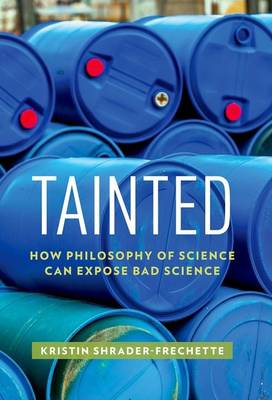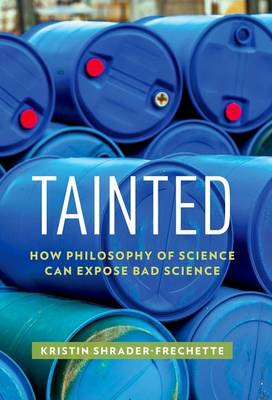
- Retrait gratuit dans votre magasin Club
- 7.000.000 titres dans notre catalogue
- Payer en toute sécurité
- Toujours un magasin près de chez vous
- Retrait gratuit dans votre magasin Club
- 7.000.0000 titres dans notre catalogue
- Payer en toute sécurité
- Toujours un magasin près de chez vous
66,45 €
+ 132 points
Format
Description
Three-fourths of scientific research in the United States is funded by special interests. Many of these groups have specific practical goals, such as developing pharmaceuticals or establishing that a pollutant causes only minimal harm. For groups with financial conflicts of interest, their scientific findings often can be deeply flawed. To uncover and assess these scientific flaws, award-winning biologist and philosopher of science Kristin Shrader-Frechette uses the analytical tools of classic philosophy of science. She identifies and evaluates the concepts, data, inferences, methods, models, and conclusions of science tainted by the influence of special interests. As a result, she challenges accepted scientific findings regarding risks such as chemical toxins and carcinogens, ionizing radiation, pesticides, hazardous-waste disposal, development of environmentally sensitive lands, threats to endangered species, and less-protective standards for workplace-pollution exposure. In so doing, she dissects the science on which many contemporary scientific controversies turn. Demonstrating and advocating "liberation science," she shows how practical, logical, methodological, and ethical evaluations of science can both improve its quality and credibility -- and protect people from harm caused by flawed science, such as underestimates of cancers caused by bovine growth hormones, cell phones, fracking, or high-voltage wires. This book is both an in-depth look at the unreliable scientific findings at the root of contemporary debates in biochemistry, ecology, economics, hydrogeology, physics, and zoology -- and a call to action for scientists, philosophers of science, and all citizens.
Spécifications
Parties prenantes
- Auteur(s) :
- Editeur:
Contenu
- Nombre de pages :
- 312
- Langue:
- Anglais
- Collection :
Caractéristiques
- EAN:
- 9780190603816
- Date de parution :
- 01-04-16
- Format:
- Livre broché
- Format numérique:
- Trade paperback (VS)
- Dimensions :
- 155 mm x 231 mm
- Poids :
- 458 g

Les avis
Nous publions uniquement les avis qui respectent les conditions requises. Consultez nos conditions pour les avis.






